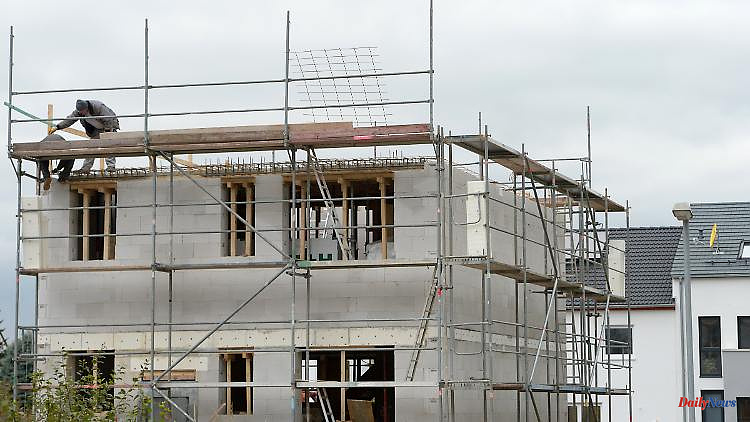Bottlenecks in materials are making construction projects increasingly expensive. But what applies to my already concluded construction contract? Do I have to accept additional demands from the construction company in the event of extreme price jumps?
Home builders are going through tough times right now. Building materials are scarce and becoming more and more expensive. In addition, there are staff shortages at the construction companies. All this makes construction more expensive and delays it. But are builders powerless at the mercy of this? What rights and opportunities do they have to enforce their agreements laid down in the construction contract?
"We are observing significant construction delays," says Florian Becker, managing director of the builders' protection association in Berlin. "Three to four months is almost the rule, but six to twelve months is not exceptional either." This can have expensive consequences for builders. "Many have given up on their rented apartments and registered their children in the new school because they wanted to move into their own house quickly after completion," says Becker. This would result in unplanned costs - for example for accommodation in the hotel or storing the furniture until the house is finished.
But it is not the case that builders are automatically left with these costs. A look at your own construction contract provides information about who is liable for construction delays and who has to bear the price increases.
"As a rule, price increases have no effect on existing agreements, because consumer construction contracts are based on fixed prices," says attorney Florian Herbst from the German Lawyers' Association's Construction and Real Estate Law Working Group. Builders have a good legal position here. The so-called material procurement risk lies with the contractor if a fixed price was agreed in the construction contract. This means that the contractor has to bear the additional costs.
And yet it happens that construction companies make additional demands on builders during the construction phase because they have to buy certain materials much more expensively than foreseeable when the contract was signed. "This is a unilateral contract change that is invalid," explains Florian Becker. "The builder doesn't have to get involved with it."
However, tact is required, because the client is interested in completing the construction and not risking a legal dispute. "It's best not to react to these additional demands at first and to postpone the issue until the end of the construction project," he advises. Then you can negotiate more calmly about who bears any additional costs. "Fairness is definitely appropriate in this situation," said Becker.
In extreme cases, however, the company may be able to claim a price adjustment. "This is the case when sticking to the contract would be unreasonable - for example in the case of a risk that both sides could not reckon with," explains Florian Herbst. "Whether this is the case with extreme price increases for material must be clarified legally."
The devil is often in the details. The assurance of the construction company to stick to a contractually agreed fixed price is often limited in time. If a specific construction period is agreed in the contract, the price fixing is only valid up to the originally agreed period, after which a price adjustment may follow. For example, if delays affect the start of construction.
"This can happen, for example, when the building authority is processing the building application," says Florian Becker. Clients should therefore not only agree a specific completion date or a specific construction period in the contract, but also a date by when the documents for the building application are to be handed over.
If there is a delay in construction, the construction company must bear all additional costs. Even if the company does everything it can to procure the necessary materials, it still has an obligation. The builder can even assert claims for damages. "He should first ask the company in writing to complete the construction," says Florian Becker. "Later, after the end of construction, it is appropriate to list any additional costs such as hotel or storage costs."
Attorney Florian Herbst advises talking to each other. "You may have claims for damages, but whether they are enforceable is another question." In his experience, no client has yet benefited from the insolvency of his building partner. On the contrary: additional costs are programmed.
The risks of material shortages and price increases are usually already factored into new contracts that are now being concluded. "We see significantly higher prices," says Florian Becker. "They reach dimensions where the estimated real estate value of the financing banks is significantly lower than the contractually agreed construction sum."
Nevertheless, the end of the road has not yet been reached and some construction companies want to secure themselves for the future with price escalation clauses in the construction contract. "But they are usually ineffective," says attorney Herbst. Anyone encountering this should seek legal advice. However, non-binding offers in a contract offer are permissible. However, the construction company must then confirm its prices before the contract is concluded.












